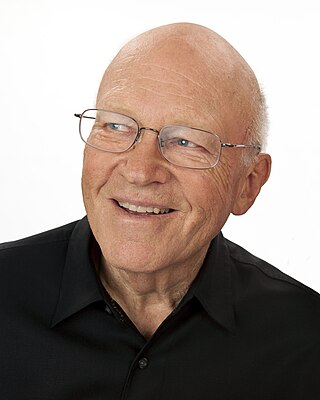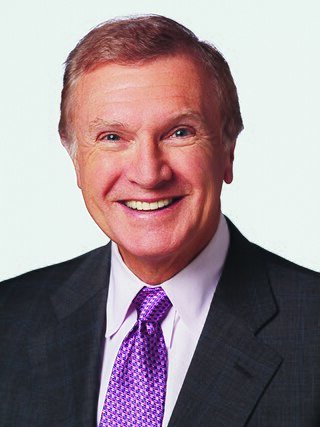
Industrial and organizational psychology, an applied discipline within psychology, is the science of human behavior in the workplace. Depending on the country or region of the world, I-O psychology is also known as occupational psychology in the United Kingdom, organisational psychology in Australia and New Zealand, and work and organizational (WO) psychology throughout Europe and Brazil. Industrial, work, and organizational (IWO) psychology is the broader, more global term for the science and profession.
Management is the administration of an organization, whether it is a business, a nonprofit organization, or a government body. It is the art and science of managing resources of the business.

Leadership, both as a research area and as a practical skill, encompasses the ability of an individual, group or organization to "lead", influence or guide other individuals, teams, or entire organizations. The word "leadership" often gets viewed as a contested term. Specialist literature debates various viewpoints on the concept, sometimes contrasting Eastern and Western approaches to leadership, and also North American versus European approaches.
Organization development (OD) is the study and implementation of practices, systems, and techniques that affect organizational change, the goal of which is to modify an organization's performance and/or culture. The organizational changes are typically initiated by the group's stakeholders. OD emerged from human relations studies in the 1930s, during which psychologists realized that organizational structures and processes influence worker behavior and motivation. More recently, work on OD has expanded to focus on aligning organizations with their rapidly changing and complex environments through organizational learning, knowledge management, and transformation of organizational norms and values. Key concepts of OD theory include: organizational climate, organizational culture and organizational strategies.
Leadership development is the process which helps expand the capacity of individuals to perform in leadership roles within organizations. Leadership roles are those that facilitate execution of an organization's strategy through building alignment, winning mindshare and growing the capabilities of others. Leadership roles may be formal, with the corresponding authority to make decisions and take responsibility, or they may be informal roles with little official authority.
Crisis management is the process by which an organization deals with a disruptive and unexpected event that threatens to harm the organization or its stakeholders. The study of crisis management originated with large-scale industrial and environmental disasters in the 1980s. It is considered to be the most important process in public relations.

Organizational theory refers to the set of interrelated concepts that involve the sociological study of the structures and operations of formal social organizations. Organizational theory also seeks to explain how interrelated units of organization either connect or do not connect with each other. Organizational theory also concerns understanding how groups of individuals behave, which may differ from the behavior of an individual. The behavior organizational theory often focuses on is goal-directed. Organizational theory covers both intra-organizational and inter-organizational fields of study.

Muskingum University is a private liberal arts college in New Concord, Ohio. Chartered in 1837 as Muskingum College, the institution is affiliated with the Presbyterian Church (USA).
Organizational behavior (OB) or organisational behaviour is the: "study of human behavior in organizational settings, the interface between human behavior and the organization, and the organization itself". OB research can be categorized in at least three ways:
A contingency theory is an organizational theory that claims that there is no best way to organize a corporation, to lead a company, or to make decisions. Instead, the optimal course of action is contingent (dependent) upon the internal and external situation. Contingent leaders are flexible in choosing and adapting to succinct strategies to suit change in situation at a particular period in time in the running of the organization.
Master of Professional Studies (MPS) is a type of master's degree concentrated in an applied field of study. MPS degrees are often interdisciplinary. While Master of Arts and Master of Science degree programs tend to focus on theory and research, Master of Professional Studies degrees tend to emphasize practical skills designed for current and aspiring professionals, including post-bachelor and post-graduate students, and often require some amount of fieldwork or internship to complement classroom learning.
Thomas Edward Dandelet was an American football and basketball coach. He served as the head football coach at college football coach at the First District Agricultural School—now known as Arkansas State University—from 1922 to 1923 and at Marshall College—now known as Marshall University—from 1931 to 1934, compiling a career college football record of 18–29–3. Dandelet was also the head basketball coach at Marshall from 1931 to 1935, tallying a mark of 43–35.

Kenneth Hartley Blanchard is an American author, business consultant and motivational speaker. His writing career includes 60+ published books, most of which are co-authored books. His most successful book, The One Minute Manager, has sold over 15 million copies and been translated into many languages.

William C. Byham is an American entrepreneur, author and industrial/organizational psychologist.
Situational Leadership Theory, or the Situational Leadership Model, is a model created by Paul Hersey and Ken Blanchard, developed while working on Management of Organizational Behavior. The theory was first introduced in 1969 as "life cycle theory of leadership". During the mid-1970s, life cycle theory of leadership was renamed "Situational Leadership Theory."
Leadership studies is a multidisciplinary academic field of study that focuses on leadership in organizational contexts and in human life. Leadership studies has origins in the social sciences, in humanities, as well as in professional and applied fields of study. The field of leadership studies is closely linked to the field of organizational studies.
University School of Management Studies is a graduate ON-CAMPUS business school of Guru Gobind Singh Indraprastha University in New Delhi, India. The school offers a full-time MBA program, doctoral programs, as well as many other management programmes. It is currently the only on campus Business School under Guru Gobind Singh Indraprastha University. The School is rated A+ in Best B-Schools Survey, 2006 conducted by Business India.

Neil Rackham is an author, consultant and academic. His writing focuses on "consultative selling," an approach he pioneered and documented in his book SPIN Selling (McGraw-Hill). Rackham has been a visiting professor at the University of Portsmouth, Cranfield School of Management, and the University of Sheffield, all in his native England, as well as at the University of Cincinnati, and is a frequent lecturer at conferences, business schools, and corporations around the world.
The history of contingency theories of leadership goes back over more than 100 years, with foundational ideas rooted in the mechanical thought of Taylorism. Later, management science began to recognize the influence of sometimes irrational human perceptions on worker performance. This led to taxonomies of leadership behavior and to contingency theories to adapt leadership behavior to the situation.

Mary Parker Follett was an American social worker, management consultant, philosopher and pioneer in the fields of organizational theory and organizational behavior. Along with Lillian Gilbreth, she was one of two great women management experts in the early days of classical management theory. She has been called the "Mother of Modern Management". Instead of emphasizing industrial and mechanical components, she advocated for what she saw as the far more important human element, regarding people as the most valuable commodity present within any business. She was one of the first theorists to actively write about and explore the role people had on effective management, and discuss the importance of learning to deal with and promote positive human relations as a fundamental aspect of the industrial sector.






